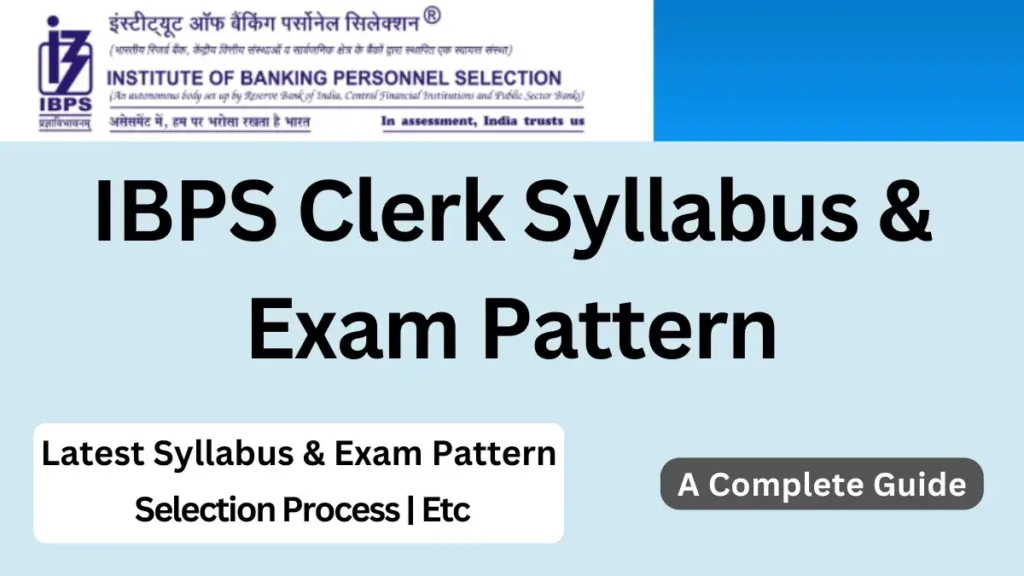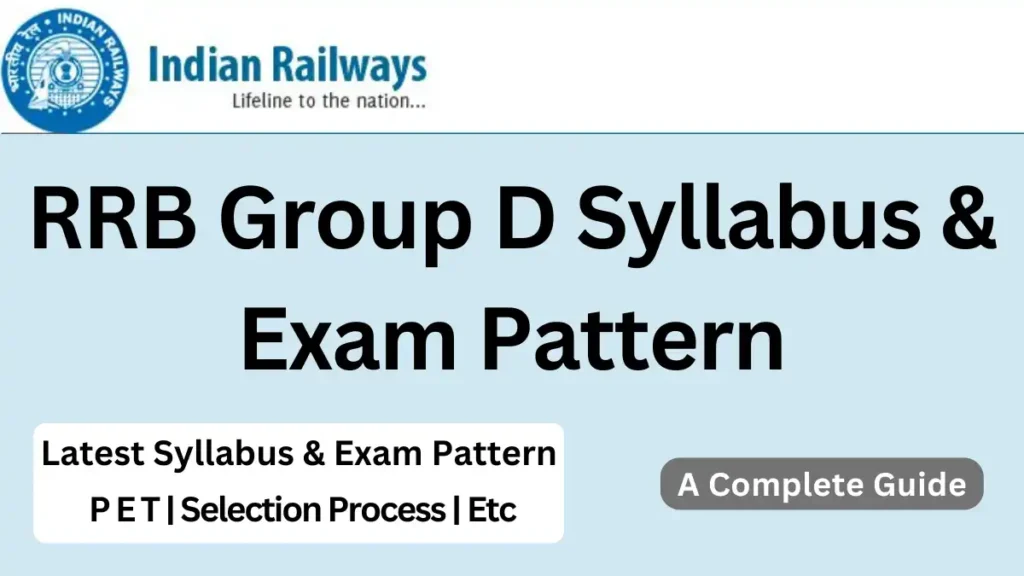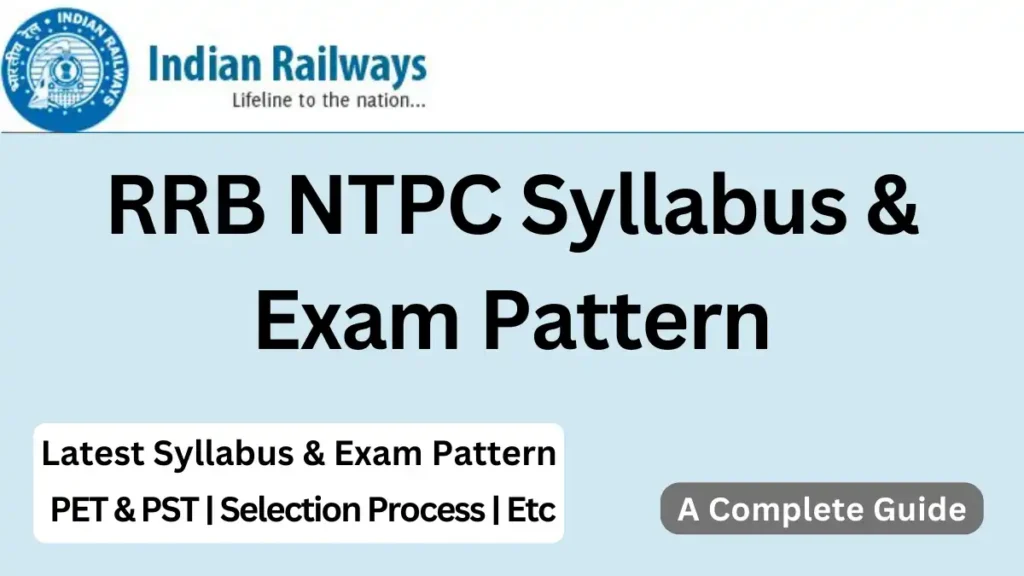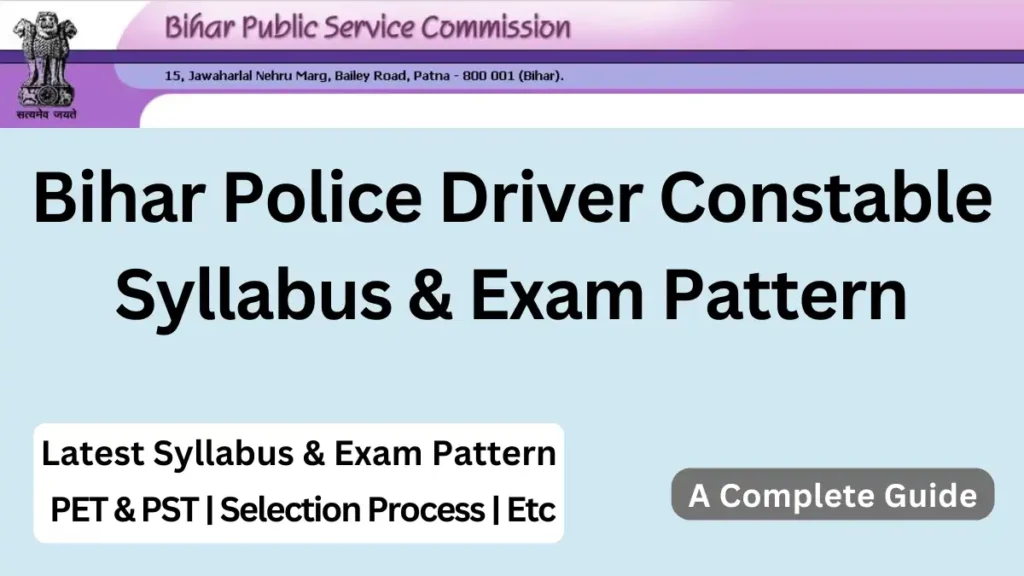as you know The National Testing Agency (NTA) Has Invited Online Applications Form CTET July 2023 Exam Which Will Be Conducted By CBSE. The Exam Date Of CTET July 2023 Will Be Conducted Between July To August 2023. The Test Will Be Conducted Bilingually (Hindi/English) Through The Online Computer Based.
In This Article, We Will Know CTET Exam Related Information About CTET Syllabus 2023 and CTET exam pattern for papers I and II. the full details of the CTET Syllabus 2023 & CTET Exam Pattern 2023 Are Described Below.
CTET Exam Date 2023
The CTET Exam Date 2023 Is Scheduled To Be Held Between The Month Of July To August In Which CBSE Will Be Overseeing The Entire Process. The Examination Will Be Conducted Bilingually (Hindi / English) Through Online Computer-Based Medium.
CTET Syllabus 2023 PDF
CTET Syllabus 2023 and CTET Exam Pattern 2023 for Paper 1 & Paper 2 with full details are mentioned below. And if you want PDF, the CTET Syllabus 2023 PDF Download link is given below in this article.
CTET July 2023 exam Overview
| Exam Name | CTET July 2023 Exam |
| Exam Conducted By | Central Board Of Secondary Education (CBSE) |
| Category | syllabus | Teaching Jobs |
| CTET July 2023 exam date (CBT Mode) | Between July To August 2023 |
| Advertisement No. | CTET July 2023 exam |
| Official Advt. Date | 25/04/2023 |
| WWW.ROJGARWARRIOR.COM | |
CTET Exam Pattern 2023
There are 2 papers in the CTET exam, the first is the primary level exam which is valid for classes I to V and the second is the secondary level (Junior Level) exam which is valid for classes VI to VIII (or I to VIII). candidates can give either or both exams.
CTET Exam Pattern for primary level (Class I To V)
- this exam Will Be a Computer Based Test (CBT) To Be Conducted In Bilingual (Hindi/ English).
- The written examination will consist of 150 Objective type questions.
- Each correct answer carries 1 mark.
- there are no negative marks for wrong answers.
- The time duration for the CTET Exam will be 2 hours 30 minutes.
- CTET Paper 1 exam will be held in the first shift of the day from 09:30 AM to 12:00 PM.
| Subject | Questions | Marks | Time Duration |
| Child Development and Pedagogy (compulsory) | 30 | 30 | 2 hours 30 minutes |
| Language I (compulsory) | 30 | 30 | |
| Language II (compulsory) | 30 | 30 | |
| Mathematics | 30 | 30 | |
| Environmental Studies | 30 | 30 | |
| total | 150 | 150 |
CTET Syllabus 2023 for primary level (Class I To V)
1. Child Development and Pedagogy (compulsory) – 30 Questions
(a) Child Development (Primary School Child) – 15 Questions
- Concept of development and its relationship with learning.
- Principles of the Development of Children.
- Influence of Heredity & Environment.
- Socialization processes: Social world & children (Teacher, Parents, Peers)
- Piaget, Kohlberg, and Vygotsky: constructs and critical perspectives.
- Concepts of child-centered and progressive education.
- Critical perspective of the construct of Intelligence.
- Multi-Dimensional Intelligence.
- Language & Thought.
- Gender as a social construct; gender roles, gender bias, and educational practice.
- Individual differences among learners, understanding differences based on diversity of language, caste, gender, community, religion, etc.
- The distinction between Assessment for learning and assessment of learning; School-BasedAssessment, Continuous & Comprehensive Evaluation: perspective and practice.
- Formulating appropriate questions for assessing the readiness levels of learners; for enhancing learning and critical thinking in the classroom and for assessing learner achievement
(b) Concept of Inclusive education and understanding children with special needs – 5 Questions
- Addressing learners from diverse backgrounds including disadvantaged and deprived.
- Addressing the needs of children with learning difficulties, „impairment‟ etc.
- Addressing the Talented, Creative, Specially Abled Learners.
(c) Learning and Pedagogy – 10 Questions
- How children think and learn; how and why children “fail‟ to achieve success in school performance.
- Basic processes of teaching and learning; children’s strategies of learning; learning as a social activity; social context of learning.
- Child as a problem solver and a “scientific investigator‟
- Alternative conceptions of learning in children, understanding children’s “errors” as significant steps in the learning process.
- Cognition & Emotions.
- Motivation and learning.
- Factors contributing to learning – personal & environmental
2. Language I (compulsory) – 30 Questions
(a) Language Comprehension – 15 Questions
Reading unseen passages – two passages one prose or drama and one poem with questions on comprehension, inference, grammar, and verbal ability (Prose passage may be literary, scientific, narrative, or discursive).
(b) Pedagogy of Language Development – 15 Questions
- Learning and acquisition.
- Principles of language Teaching.
- Role of listening and speaking; function of language and how children use it as a tool.
- A critical perspective on the role of grammar in learning a language for communicating ideas verbally and in written form.
- Challenges of teaching language in a diverse classroom; language difficulties, errors, and disorders.
- Language Skills.
- Evaluating language comprehension and proficiency: speaking, listening, reading, and writing.
- Teaching-learning materials: Textbook, multi-media materials, multilingual resources classroom.
- Remedial Teaching
3. Language II (compulsory) – 30 Questions
(a) Language Comprehension – 15 Questions
Two unseen prose passages (discursive or literary or narrative or scientific) with questions on comprehension, grammar, and verbal ability.
(b) Pedagogy of Language Development – 15 Questions
- Learning and acquisition.
- Principles of language Teaching.
- Role of listening and speaking; function of language and how children use it as a tool.
- A critical perspective on the role of grammar in learning a language for communicating ideas verbally and in written form.
- Challenges of teaching language in a diverse classroom; language difficulties, errors, and disorders.
- Language Skills.
- Evaluating language comprehension and proficiency: speaking, listening, reading, and writing.
- Teaching-learning materials: Textbook, multi-media materials, multilingual resources classroom.
- Remedial Teaching
4. Mathematics – 30 Questions
(a) Content – 15 Questions
Geometry, Shapes & Spatial Understanding, Solids around Us, Numbers, Addition and Subtraction, Multiplication, Division, Measurement, Weight, Time, Volume, Data Handling, Patterns, and Money.
(b) Pedagogical issues – 15 Questions
- Nature of Mathematics/Logical thinking; understanding children’s thinking and reasoning patterns and strategies of making meaning and learning.
- Place of Mathematics in Curriculum.
- Language of Mathematics.
- Community Mathematics.
- Evaluation through formal and informal methods.
- Problems of Teaching.
- Error analysis and related aspects of learning and teaching.
- Diagnostic and Remedial Teaching.
5. Environmental Studies – 30 Questions
(a) Content – 15 Questions
- Family and Friends: Relationships Work and Play Animals Plants.
- Food.
- Shelter.
- Water.
- Travel.
- Things We Make and Do
(b) Pedagogical issues – 15 Questions
- Concept and scope of EVS
- Significance of EVS integrated EVS
- Environmental Studies & Environmental Education
- Learning Principles
- Scope & Relation to Science & Social Science
- Approaches of presenting concepts • Activities
- Experimentation/Practical Work
- Discussion
- CCE
- Teaching material/Aids
- Problems
CTET books for paper 1 and 2
 |
 |
Read Also: CTET July 2023 Exam Notification: Cheak Exam Date, fees, Eligibility & Full Details
CTET Exam Pattern for Junior Level (Class VI To VIII)
- this exam Will Be a Computer Based Test (CBT) To Be Conducted In Bilingual (Hindi/ English).
- The written examination will consist of 150 Objective type questions.
- Each correct answer carries 1 mark.
- there are no negative marks for wrong answers.
- The time duration for the CTET Exam will be 2 hours 30 minutes.
- The CTET Paper 2 exam will be held in the second shift of the day from 02:30 PM to 05:00 PM.
| Subject | Questions | Marks | Time Duration |
| Child Development and Pedagogy (compulsory) | 30 | 30 | 2 hours 30 minutes |
| Language I (compulsory) | 30 | 30 | |
| Language II (compulsory) | 30 | 30 | |
| Mathematics and Science (for Mathematics and Science teachers)
(OR) Social Studies/ Social Science (for Social Studies/ Social Science teachers) |
60 | 60 | |
| total | 150 | 150 |
CTET Syllabus 2023 for Junior Level (Class VI To VIII)
1. Child Development and Pedagogy (compulsory) – 30 Questions
(a) Child Development (Primary School Child) – 15 Questions
- Concept of development and its relationship with learning.
- Principles of the Development of Children.
- Influence of Heredity & Environment.
- Socialization processes: Social world & children (Teacher, Parents, Peers)
- Piaget, Kohlberg, and Vygotsky: constructs and critical perspectives.
- Concepts of child-centered and progressive education.
- Critical perspective of the construct of Intelligence.
- Multi-Dimensional Intelligence.
- Language & Thought.
- Gender as a social construct; gender roles, gender bias, and educational practice.
- Individual differences among learners, understanding differences based on diversity of language, caste, gender, community, religion, etc.
- The distinction between Assessment for learning and assessment of learning; School-BasedAssessment, Continuous & Comprehensive Evaluation: perspective and practice.
- Formulating appropriate questions for assessing the readiness levels of learners; for enhancing learning and critical thinking in the classroom and for assessing learner achievement
(b) Concept of Inclusive education and understanding children with special needs – 5 Questions
- Addressing learners from diverse backgrounds including disadvantaged and deprived.
- Addressing the needs of children with learning difficulties, „impairment‟ etc.
- Addressing the Talented, Creative, Specially Abled Learners.
(c) Learning and Pedagogy – 10 Questions
- How children think and learn; how and why children “fail‟ to achieve success in school performance.
- Basic processes of teaching and learning; children’s strategies of learning; learning as a social activity; social context of learning.
- Child as a problem solver and a “scientific investigator‟
- Alternative conceptions of learning in children, understanding children’s “errors” as significant steps in the learning process.
- Cognition & Emotions.
- Motivation and learning.
- Factors contributing to learning – personal & environmental
2. Language I (compulsory) – 30 Questions
(a) Language Comprehension – 15 Questions
Reading unseen passages – two passages one prose or drama and one poem with questions on comprehension, inference, grammar, and verbal ability (Prose passage may be literary, scientific, narrative, or discursive).
(b) Pedagogy of Language Development – 15 Questions
- Learning and acquisition.
- Principles of language Teaching.
- Role of listening and speaking; function of language and how children use it as a tool.
- A critical perspective on the role of grammar in learning a language for communicating ideas verbally and in written form.
- Challenges of teaching language in a diverse classroom; language difficulties, errors, and disorders.
- Language Skills.
- Evaluating language comprehension and proficiency: speaking, listening, reading, and writing.
- Teaching-learning materials: Textbook, multi-media materials, multilingual resources classroom.
- Remedial Teaching
3. Language II (compulsory) – 30 Questions
(a) Language Comprehension – 15 Questions
Two unseen prose passages (discursive or literary or narrative or scientific) with questions on comprehension, grammar, and verbal ability.
(b) Pedagogy of Language Development – 15 Questions
- Learning and acquisition.
- Principles of language Teaching.
- Role of listening and speaking; function of language and how children use it as a tool.
- A critical perspective on the role of grammar in learning a language for communicating ideas verbally and in written form.
- Challenges of teaching language in a diverse classroom; language difficulties, errors, and disorders.
- Language Skills.
- Evaluating language comprehension and proficiency: speaking, listening, reading, and writing.
- Teaching-learning materials: Textbook, multi-media materials, multilingual resources classroom.
- Remedial Teaching
4. (I) Mathematics and Science (for Mathematics and Science teachers) – 60 Questions
| (1) Mathematics – 30 Questions | (2) science – 30 Questions |
(1) Mathematics – 30 Questions
(a) Content – 20 Questions
- Number System: Knowing our Numbers, Playing with Numbers, Whole Numbers, Negative Numbers, and Integers.
- Algebra: Introduction to Algebra and RatioandProportion.
- Geometry: Basic geometrical ideas (2-D), Understanding Elementary Shapes (2-D and 3-D), Symmetry (reflection), Construction (using Straight edge Scale, protractor, compasses), Mensuration, and Data handling.
(b) Pedagogical issues – 10 Questions
Nature of Mathematics/Logical Thinking, Place of Mathematics in Curriculum, Language of Mathematics, Community Mathematics, Evaluation, Remedial Teaching, Problem of Teaching.
(2) science – 30 Questions
(a) Content – 20 Questions
- Food: Sources of food, Components of food, Cleaning food.
- Materials: Materials of daily use.
- The World of the Living.
- Moving Things People and Ideas
- How things work: Electric current and circuits, Magnets.
- Natural Phenomena
- Natural Resources
(b) Pedagogical issues – 10 Questions
Nature & Structure of Sciences, Natural Science/ Aims & objectives, Understanding & Appreciating Science, Approaches/ Integrated Approach, Observation/ Experiment/ Discovery (Method of Science), Innovation, Text Material/ Aids, Evaluation – cognitive/ psychomotor/ affective, Problems, and Remedial Teaching.
4. (II) Social Studies/ Social Sciences (for Social Studies/ Social Science teachers) – 60 Questions
(a) Content – 40 Questions
History: When, Where, and How, The Earliest Societies, The First Farmers and Herders, The First Cities, Early States, New Ideas, The First Empire, Contacts with Distant lands, Political Developments, Culture and Science, New Kings and Kingdoms, Sultans of Delhi, Architecture, and Creation of an Empire.
and Social Change, Regional Cultures, The Establishment of Company Power, Rural Life and Society, Colonialism and Tribal Societies, The Revolt of 1857-58, Women and Reform, Challenging the Caste System, The Nationalist Movement, and India After Independence.
Geography: Geography as a social study and as a science, Planet – Earth in the solar system, Globe, Environment in its totality – natural and human environment, Air, Water, Human Environment – settlement, transport, and communication, Resources: Types – Natural and Human, and Agriculture.
Social and Political Life: Diversity, Government, Local Government, Making a Living, Democracy, State Government, Understanding Media, Unpacking Gender, The Constitution, Parliamentary Government, The Judiciary, and Social Justice and the Marginalised.
(b) Pedagogical issues – 20 Questions
Concept & Nature of Social Science/ Social Studies, Class Room Processes, activities, and Discourse, Developing Critical Thinking, Enquiry/ Empirical Evidence, Problems of Teaching Social Science/ Social Studies, Sources – Primary & Secondary, Projects Work, and Evaluation.
CTET Exam Date 2023
The Exam Date Of CTET July 2023 Will Be Conducted Between July To August 2023. CTET July 2023 Exam Will Be Conducted By CBSE. The Test Will Be Conducted Bilingually (Hindi/English) Through The Online Computer Based.
Read Also: SSC CGL Syllabus 2023 For Tier 1 And Tier 2 Exam
Important links |
|
| CTET syllabus 2023 PDF | click here |
| Get full details of CTET July 2023 Exam | click here |
| C TET Official Website | click here |
| Join Us On | Facebook | Telegram |
CTET Syllabus And Exam Pattern 2023 FAQs
Q. Will CTET Be Held In July 2023?
Ans. Yes CTET Will Be Held In July 2023. The National Testing Agency (NTA) Has Invited Online Applications Form CTET July 2023 Exam Which Will Be Conducted By CBSC. The Last Date To Apply For CTET July 2023 Is 26 May 2023.
Q. What Is The Next Date Of CTET Exam 2023?
Ans. The Next CTET Exam Date Will Be Held On Between July To August 2023.
Q. Is CTET Conducted Twice A Year?
Ans. This CTET Exam Is Conducted Twice A Year By CBSC. The First Exam Is Held In July And The Second In December.
Conclusion
In This Article, We Have Covered CTET July 2023 Exam syllabus and exam pattern Related Information for Paper I and Paper II. If You Have Any Suggestions Or Advice Related To This Article Or CTET Syllabus 2023 and CTET exam pattern 2023 Then Please Comment Below.





